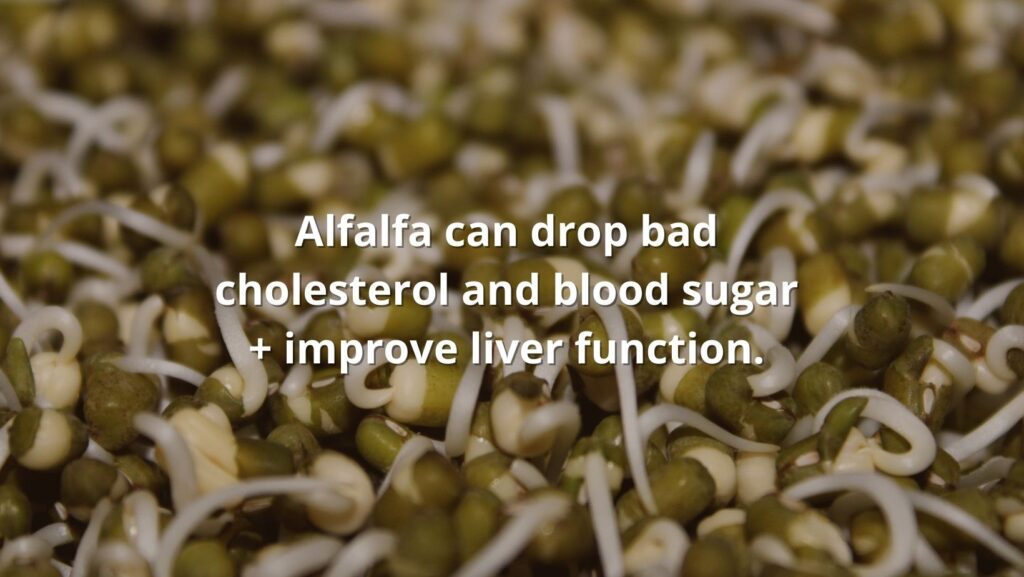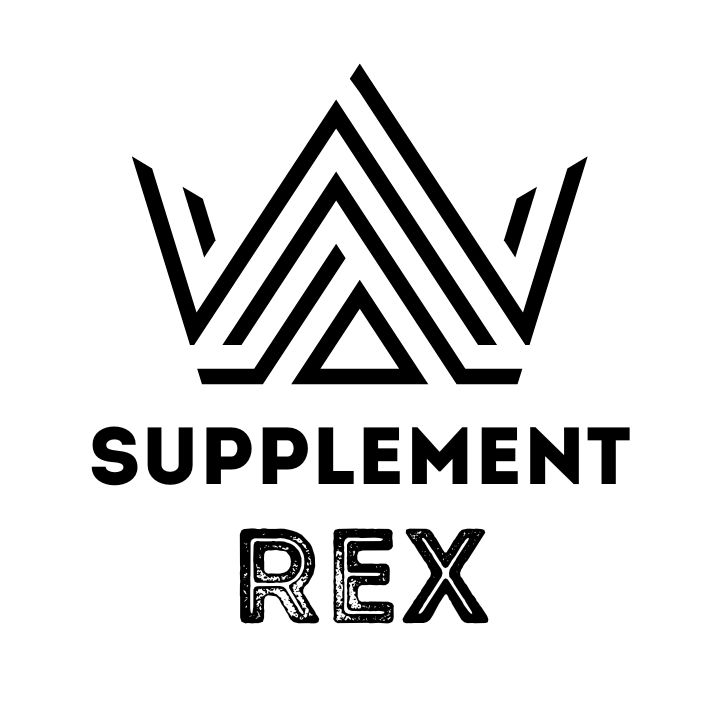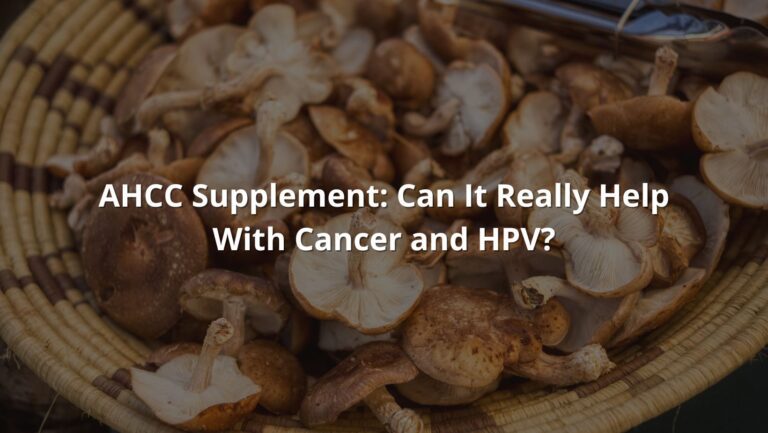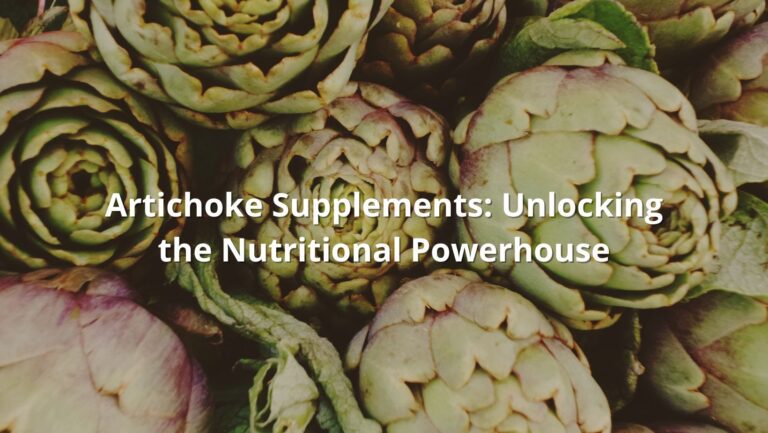Alfalfa Supplements: Can They Really Help Lower Your Cholesterol?
Are you looking for a natural way to support your heart health? Alfalfa supplements just may be the way.
Alfalfa is a legume plant that is known for its high nutrient content and numerous health benefits. It has been used for centuries in traditional medicine to treat a variety of ailments, including high cholesterol levels. Alfalfa supplements are a popular addition to prescription medications for managing cholesterol, and their effectiveness has been the subject of many studies in recent years.
In this article, we will look into the potential benefits of alfalfa supplements for cholesterol management, including their nutritional content, supplement uses beyond cholesterol management, dosage, warnings, and potential side effects.
What Is Alfalfa?


Alfalfa (Medicago sativa) is a plant that is widely cultivated around the world as a livestock feed and as a cover crop for soil enrichment. In fact, farmers have known about the benefits of alfalfa long before interesent in the supplement grew. And, alfalfa’s use in traditional medicine is also long-standing. South and Central Asian herbalists have been prescribing it for centuries to improve heart health and overall well being
The leaves, seeds, and sprouts of the plant are a source of essential nutrients, including vitamins A, C, E, and K, as well as minerals like calcium, iron, and potassium. Alfalfa also contains flavonoids, phytoestrogens, and other plant compounds that may have health benefits.
Alfalfa Nutrition Facts


You can get alfalfa into your diet in one of two ways. Alfalfa supplements are popular, easy to store, and convenient for travel, but you can also just much on some alfalfa sprouts if you find them in your local health store.
Alfalfa is a rich source of essential nutrients, especially vitamin K and copper. It’s not calorie-dense at all, either, with one cup of raw alfalfa sprouts containing approximately:
- Calories: 8
- Protein: 0.9 grams
- Carbohydrates: 0.7 grams
But it really shines in terms of micronutrients [1]:
- Vitamin C: 3% of the DV
- Vitamin K: 8% of the DV
- Folate: 3% of the DV
- Calcium: 1% of the DV
- Iron: 2% of the DV
- Magnesium: 2% of the DV
- Copper: 6% of the DV
- Folate: 3% of the DV
- Thiamine: 2% of the DV
- Riboflavin: 3% of the DV
But, it’s one particular beneficial ingredient that accounts for the plant’s anti-cholesterol activity. Alfalfa is rich in saponins, which decrease cholesterol absorption. [2] Saponins also help the body purge some of its cholesterol compounds, contributing to a lower cholesterol level in the blood – and a bunch of health benefits that come with that:
Cholesterol-Lowering Potential of Alfalfa Supplements


Alfalfa supplements have gained popularity in recent years due to their potential cholesterol-lowering effects. Several studies have found that alfalfa supplements may help lower LDL cholesterol levels (the “bad” cholesterol) while increasing HDL cholesterol (the “good” cholesterol).
One study published in Interventional Medicine & Applied Science looked at an animal model of diabetes (which is one of the most common metabolic disorders and a huge public health risk). The alfalfa extract managed to reduce cholesterol, as well as decrease blood sugar and triglicerydes. Even better, though the “bad” LDL cholesterol dropped, HDL actually increased. And, there were additional perks, too, such as improved liver function and reversed liver damage. [3]
Several exciting animal studies followed and so far alfalfa is a promising supplement for cholesterol reduction. But, there is a catch. All the promising results in animals aside, we haven’t seen a large-scale, double-blind, placebo-controlled clinical trial that looks at alfalfa’s benefits in humans.
At this point, while it’s excellent as a supplement, alfalfa can’t be a replacement for statins or lifestyle interventions for lowering cholesterol. So, if your LDL has shown up high in your latest blood work panel, consider adding alfalfa, but don’t cut out the statins just yet.
Other Health Benefits of Alfalfa Supplements


While the potential cholesterol-lowering effects of alfalfa supplements are promising, they are not the only potential health benefits of this nutrient-rich plant. Here are some other potential benefits of alfalfa supplements:
- Fights oxidative stress: Alfalfa contains flavonoids and other plant compounds that may have antioxidant effects, helping to protect the body against cellular damage caused by free radicals. [4]
- Supports healthy blood sugar levels: As we saw from the animal study, alfalfa can reduce blood sugar in those with diabetes. This is actually one of the most ancient uses of the plant – traditional healers have been recommending it to people with metabolic issues for ages. So, whether you’ve been diagnosed with diabetes or you’re struggling with some insulin resistance symptoms, alfalfa can be a beneficial addition to your health regimen
- Promotes hormonal balance (especially in menopause): One of the main bioactive compounds in alfalfa are a group called phytoestrogens. And, you guessed it, they are the plant (phyto) compound closest to the human hormone estrogen. Since menopause symptoms often come from changes in estrogen levels, an alfalfa supplement can help aleviate some of those issues.
What is more, since alfalfa is such an excellent source of vitamin K, it can promote bone health and ensure healthy blood clotting processes.
Dosage and Administration of Alfalfa Supplements
The recommended dosage for alfalfa supplements varies depending on the form of the supplement. Generally, it is recommended to start with the lower dose and watch out for sensitivity reactions you might have to the supplement. Even with high-quality alfalfa from a reputable producer, you might be sensitive or even allergic to alfalfa.
Follow the instructions on the package – each specific supplement has different concentrations, so it’s best to trust the producer on this one.
You can also add alfalfa sprouts to your diet. Some health stores (and speciality food stores) have them ready-to-eat – or, you could sprout them yourself, it only takes a couple of days.
Keep in mind that alfalfa can attract E.coli and Salmonella bacteria and give you a nasty food poisoning – so, growing them in a clean environment is essential for food safety.
Warnings and Side Effects of Alfalfa Supplements
While alfalfa supplements are generally considered safe for most people, there are some potential side effects and warnings to be aware of. Some possible side effects of alfalfa supplements include:
- Digestive upset: Alfalfa sprouts may cause digestive discomfort, such as gas or bloating. For most people these are minor and resolve on their own. If you struggle with a condition triggered by fiber (like IBS, for example), it’s probably best to stick to powdered or tablet supplements, which have a similar micronutrient makeup but less fiber.
- Hormonal effects: Alfalfa contains phytoestrogens, which may be dangerous for certain breast cancer patients (HER-2 positive tumors in particular), since they can enhance cancer growth.
- Blood clots: Vitamin K is a key nutrient in alfalfa – and it’s also essential for blood clotting. If you’re taking any blood thinning medications, alfalfa might interact with them and reduce their efficiency. Similarly, if you have a condition that makes you prone to blood clots, it’s best to steer clear from alfalfa supplements.
- Lupus: There have been some reports of people whose systemic lupus erythematosus symptoms worsened after they took an alfalfa supplement. This is probably because the plant stimulates your immune system, which, in an autoimmune condition, can have negative effects. [5]
- Pregnancy: Once again, alfalfa sprouts are the main culprit here. The sprouts can host a range of food-bourne pathogens if they weren’t grown correctly. For this reason, pregnant people are better off avoiding them.
Conclusion
In conclusion, alfalfa supplements have promising potential cholesterol-lowering effects, as well as a range of other health benefits. However, it is important to consult with a healthcare provider before taking any new supplement, and to follow the recommended dosage and administration guidelines. With further research and understanding of the potential benefits and limitations of alfalfa supplements, they may become an important part of cholesterol management and overall health and wellness.
FAQs About Alfalfa Supplements
Can alfalfa supplements really help lower cholesterol levels?
Yes, alfalfa has lowered LDL cholesterol in animal studies. While the research is promising, more studies are needed to fully understand the potential cholesterol-lowering effects of alfalfa supplements.
Are alfalfa supplements safe for everyone to take?
Alfalfa supplements are generally considered safe for most people, but it is important to consult with a healthcare provider before taking any new supplement. If you’re pregnant or take blood thinners, it’s best to avoid alfalfa
What are some other potential health benefits of alfalfa supplements?
In addition to potential cholesterol-lowering effects, alfalfa supplements may have anti-inflammatory, digestive, bone-supportive, and antioxidant effects.
What is the recommended dosage for alfalfa supplements?
The recommended dosage varies depending on the form of the supplement and desired health benefits, so it is important to consult with a healthcare provider before starting any new supplement.
What are some potential side effects of alfalfa supplements?
Possible side effects of alfalfa supplements include digestive upset, food-bourne pathogen exposure, and a worsening of lupus symptoms.
References
- https://fdc.nal.usda.gov/fdc-app.html#/food-details/1103333/nutrients
- Luo Z, Xu W, Zhang Y, Di L, Shan J. A review of saponin intervention in metabolic syndrome suggests further study on intestinal microbiota. Pharmacol Res. 2020 Oct;160:105088. doi: 10.1016/j.phrs.2020.105088. Epub 2020 Jul 16. PMID: 32683035.
- Amraie E, Farsani MK, Sadeghi L, Khan TN, Babadi VY, Adavi Z. The effects of aqueous extract of alfalfa on blood glucose and lipids in alloxan-induced diabetic rats. Interv Med Appl Sci. 2015 Sep;7(3):124-8. doi: 10.1556/1646.7.2015.3.7. Epub 2015 Sep 28. PMID: 26525173; PMCID: PMC4609025.
- Cui Y, Liu B, Sun X, Li Z, Chen Y, Guo Z, Liu H, Li D, Wang C, Zhu X, Shi Y. Protective effects of alfalfa saponins on oxidative stress-induced apoptotic cells. Food Funct. 2020 Sep 23;11(9):8133-8140. doi: 10.1039/d0fo01797c. PMID: 32869827.
- Drugs and Lactation Database (LactMed®) [Internet]. Bethesda (MD): National Institute of Child Health and Human Development; 2006–. Alfalfa. 2021 Jun 21. PMID: 30000890.




